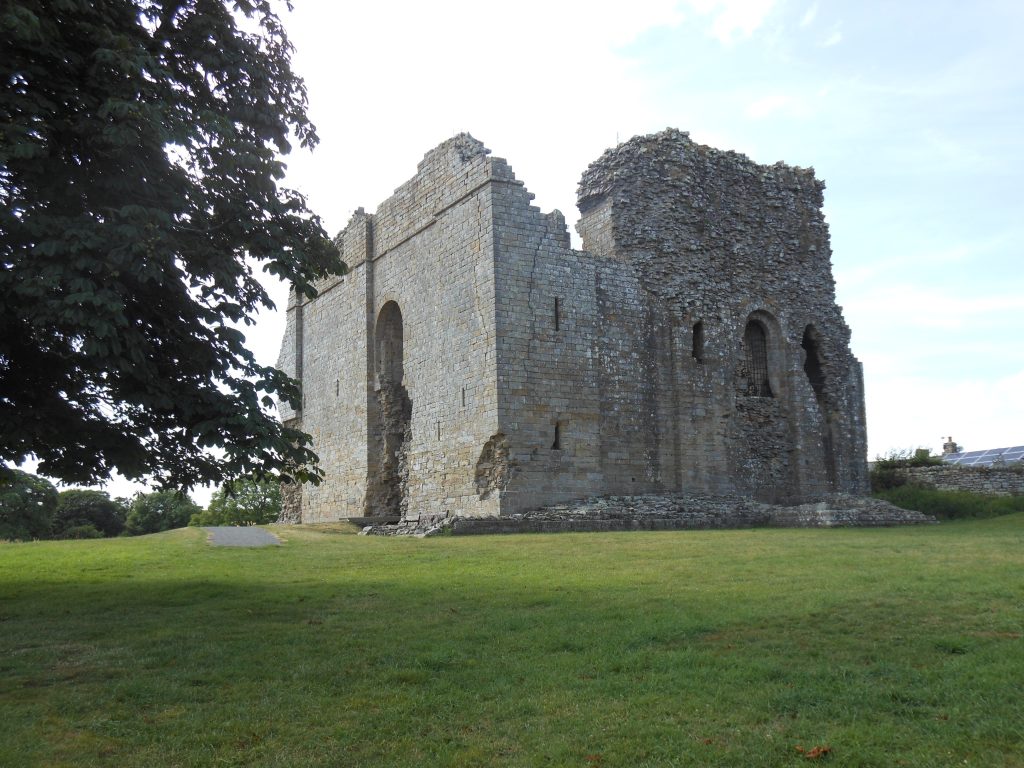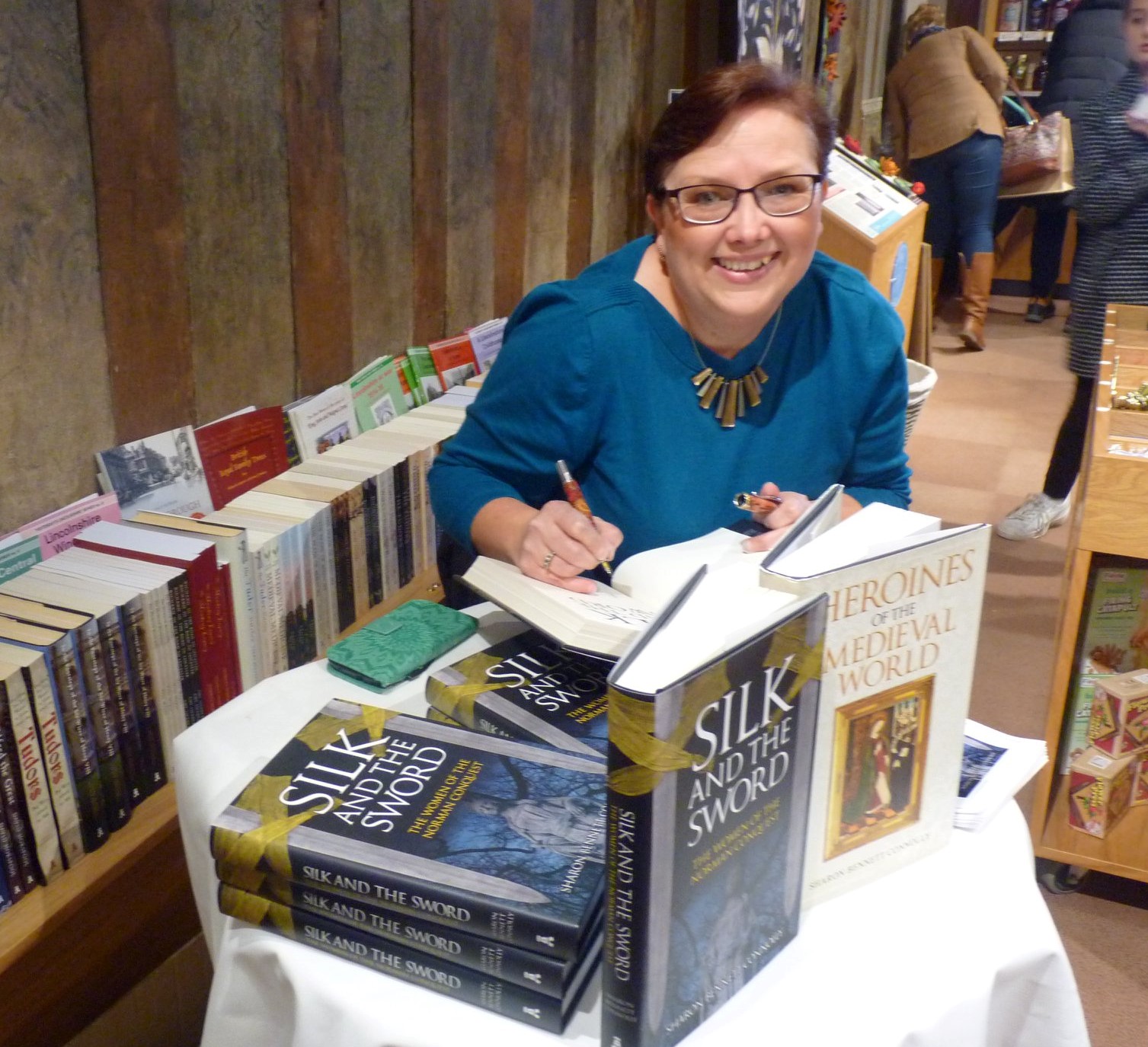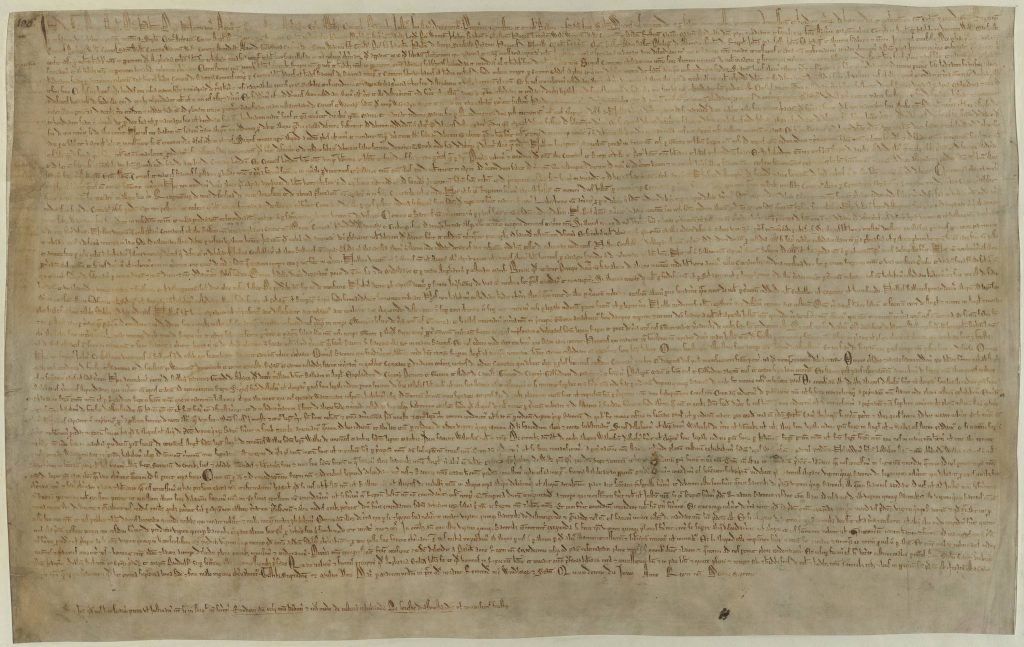I was delighted to be invited to participate in the Ladies of Magna Carta blog tour. Sharon’s book is insightful and offers the reader a view of how women helped influence history. She thoroughly researches her material for each of her books and has made a significant contribution to the understanding of medieval women’s history. I highly recommend Ladies of Magna Carta: Women of Influence in Thirteenth Century England.

Thank you so much to Kristie for inviting me to her blog to talk about Ladies of Magna Carta: Women of Influence in Thirteenth Century England.
16 Facts About Women and Magna Carta
- As queen, Isabelle d’Angoulême is mentioned in Clause 61, the security clause of Magna Carta: ‘…And if we or our justiciar, should we be out of the kingdom, do not redress the offence within forty days from the time it was brought to the notice of us or our justiciar, should we be out of the kingdom, the aforesaid four barons shall refer the case to the rest of the twenty-five barons and those twenty-five barons with the commune of all the land shall distrain and distress us in every way they can, namely by seizing castles, lands and possessions, and in such other ways as they can, saving our person and those of our queen and our children, until, in their judgement, amends have been made; and when it has been redressed they are to obey us as they did before…’
- Other than Isabelle d’Angoulême, only 2 women can be positively identified in the text of Magna Carta. Though they are not named, the Scottish princesses, Isabella and Margaret appear in clause 59 as the ‘sisters’ of Alexander II, King of Scots: ‘We will treat Alexander, king of Scots, concerning the return of his sisters and hostages and his liberties and rights in the same manner in which we will act towards our other barons of England, unless it ought to be otherwise because of the charters which we have from William his father, formerly king of Scots; and this shall be determined by the judgement of his peers in our court.’
- Magna Carta restricts the right of women to accuse others of murder. Clause 54 states: ‘No one shall be taken or imprisoned upon the appeal of a woman for the death of anyone except her husband.’ In a time when a man had the right to face his accuser in trial by combat to prove his innocence, this right would be automatically removed if his accuser was a woman; women were not allowed to use force of arms. A female accuser was seen as being able to circumvent the law, and therefore the law was open to abuse. It was merely that a woman may make a false accusation, rather that a woman may be manipulated by her menfolk to make an accusation, knowing that she would not be required to back it up by feat of arms. Whereas her husband, father or brother may have been challenged to do just that.
- Clause 54 was used on 5 July 1215, when King John ordered the release of Everard de Mildeston, an alleged murderer. Everard had been accused of the murder of her son, Richard, by Seina Chevel. The charge was therefore forbidden under the terms of Magna Carta, and the accused released.
- The experiences of Loretta de Braose are believed to have inspired Clauses 7 and 8, which sought to protect the rights of widows. Clause 7 established that: ‘After her husband’s death, a widow shall have her marriage portion and her inheritance at once and without any hindrance; nor shall she pay anything for her dower, her marriage portion, or her inheritance which she and her husband held on the day of her husband’s death; and she may stay in her husband’s house for 40 days after his death, within which period her dower shall be assigned to her.’
- Clause 8 allowed that a widow was to be free to choose whether or not to remarry, so long as she paid for the privilege: ‘No widow shall be compelled to marry so long as she wishes to live without a husband, provided that she gives security that she will not marry without our consent if she holds of us, or without the consent of the lord of whom she holds, if she holds of another.’
- The clauses protecting widows were intended to protect the inheritances of underage heirs, rather than the rights of the women themselves.
- Clause 11 protects a wife from having to repay the debts of her dead husband from her dower: ‘And if a man dies owing a debt to the Jews, his wife may have her dower and pay nothing of that debt; and if he leaves children under age, their needs shall be met in a manner in keeping with the holding of the deceased; and the debts shall be paid out of the residue, saving the service due to the lords. Debts owing to others than Jews shall be dealt with likewise.’
- Clause 12 allows the king to raise a ‘reasonable’ aid or scutage (taxes) to pay towards the first marriage of his eldest daughter: ‘No scutage or aid shall be levied in our realm except by the common counsel of our realm, unless it is for the ransom of our person, the knighting of our eldest son or the first marriage of our eldest daughter; and for these only a reasonable aid is to be levied. Aids from the city of London are to be treated likewise.’
- Clause 15 allows that no lord could raise a tax from his free men except to ransom his person, knight his eldest son and marry his eldest daughter once: ‘Henceforth we will not grant anyone that he may take an aid from his free men except to ransom his person, to make his eldest son a knight and to marry his eldest daughter once; and for these purposes only a reasonable aid is to be levied.’
- The fate of Matilda de Braose, left to starve to death in John’s dungeons, is thought to have influenced clauses 39 and 40 of Magna Carta. Clause 39 states; ‘No man shall be taken, imprisoned, outlawed, banished or in any way destroyed, nor will we proceed against or prosecute him, except by the lawful judgement of his peers or by the law of the land.’ Clause 40 promised: ‘To no one will we sell, to no one will we deny or delay right or justice.’
- Clause 39 could not prevent the perpetual imprisonment of women of royal blood, such as Eleanor of Brittany and Gwenllian of Wales. Their royal blood made them a focus for rebellion and opposition and therefore a threat to the throne and the stability of the kingdom.
- Ela of Salisbury used clause 8 of Magna Carta to support her rejection of an unwelcome offer of marriage: ‘No widow is to be distrained to marry while she wishes to live without a husband.’
- Clause 6 of Magna Carta dictated that ‘Heirs shall be given in marriage without disparagement, yet so that before a marriage is contracted it shall be made known to the heir’s next of kin.’ This clause should have effectively protected women from being forced to marry below their station.
- Isabel d’Aubigny famously invoked Magna Carta when Henry III commandeered land and rights that were rightly hers, proclaiming; ‘Where are the liberties of England, so often recorded, so often granted, and so often ransomed?’
- The Rt. Hon. Fiona Woolf, C.B.E., called Magna Carta ‘the single most important legal document in history. The foundation for global constitutions, commerce and communities. The anchor for the Rule of Law.’

Author bio:
 Sharon Bennett Connolly has been fascinated by history her whole life. She has studied history academically and just for fun – and even worked as a tour guide at historical sites. For Christmas 2014, her husband gave her a blog as a gift – www.historytheinterestingbits.com – and Sharon started researching and writing about the stories that have always fascinated, concentrating on medieval women. Her latest book, Ladies of Magna Carta: Women of Influence in Thirteenth Century England, released in May 2020, is her third non-fiction book. She is also the author of Heroines of the Medieval World and Silk and the Sword: The Women of the Norman Conquest. Sharon regularly gives talks on women’s history; she is a feature writer for All About History magazine and her TV work includes Australian Television’s ‘Who Do You Think You Are?‘
Sharon Bennett Connolly has been fascinated by history her whole life. She has studied history academically and just for fun – and even worked as a tour guide at historical sites. For Christmas 2014, her husband gave her a blog as a gift – www.historytheinterestingbits.com – and Sharon started researching and writing about the stories that have always fascinated, concentrating on medieval women. Her latest book, Ladies of Magna Carta: Women of Influence in Thirteenth Century England, released in May 2020, is her third non-fiction book. She is also the author of Heroines of the Medieval World and Silk and the Sword: The Women of the Norman Conquest. Sharon regularly gives talks on women’s history; she is a feature writer for All About History magazine and her TV work includes Australian Television’s ‘Who Do You Think You Are?‘
Links:
Blog: https://historytheinterestingbits.com/
Facebook: https://www.facebook.com/Thehistorybits/
Twitter: @Thehistorybits
Pen & Sword Books: https://www.pen-and-sword.co.uk/Ladies-of-Magna-Carta-Hardback/p/17766Amazon: mybook.to/LadiesofMagnaCarta

